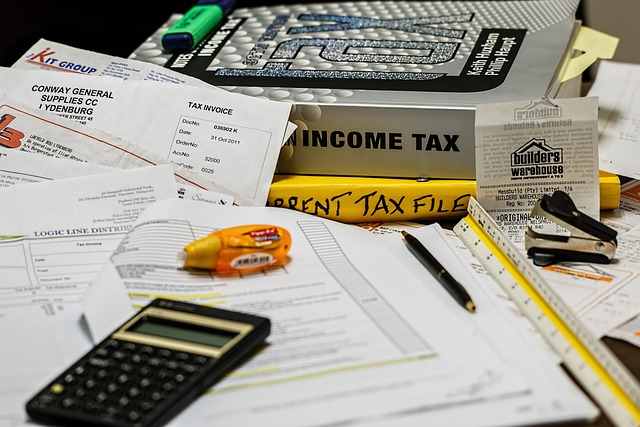Hello, small business owners! I have some valuable insights to share about tax credits that could save you a lot of money. You’ve put a lot of effort into growing your business, and it’s only right that you get every benefit at tax time. So, let’s dispel some misconceptions and get the facts straight!
At a Glance
- Myth Debunked: Tax credits aren’t just for large companies; small businesses can also benefit greatly.
- Home Sweet Home Office: Claiming home office expenses is completely legal and can lower your tax bill.
- Audit Worries: Small businesses can be audited, but good practices will keep you safe.
- Tech Truths: Tax software can be helpful, but it’s not foolproof—understanding the details is important.
- Practical Tips: Checking eligibility, keeping accurate records, and strategic planning are crucial to maximizing tax credits.
Common Misconceptions About Small Business Tax Credits You Should Be Aware Of
Myth 1: Tax Credits Are Only for Large Companies
Let’s start with a big myth. Some people believe that tax credits are like backstage passes at a concert—only for the big stars. But here’s the reality: tax credits are for all businesses, regardless of size. Whether you’re a sole proprietor or have a growing team, there are tax credits available for you. So don’t discount yourself—every little bit helps your profit margin.

Myth 2: You Can’t Write Off Home Office Expenses
Next up, we have your home office. Some people believe it’s off-limits for tax credits, but that’s not true. If you’re using a portion of your home regularly and exclusively for business, you might be able to write it off. Keep track of your expenses, and don’t miss this chance to lower your tax bill.
Myth 3: Audits Are Only for Big Businesses
Just hearing the word audit is enough to give any business owner the heebie-jeebies. But here’s the thing: small businesses can be audited too. As long as you keep good records and report everything honestly, you should be fine. And remember, audits aren’t just about finding mistakes; they’re about making sure everything is above board.
Myth 4: Using Tax Software Ensures Perfect Accuracy and Maximum Credits
Many people think that using tax software is like using a GPS for your taxes – it will take you exactly where you need to be, without any detours. But just like the best GPS can’t plan your route if it doesn’t know all the roads, the same is true for tax software. It’s an excellent tool, but it’s not a replacement for knowing the ins and outs of tax credits. You need to know what’s available to you and how it applies to your specific business situation.
Decoding Tax Credits: What Are They and Why They Matter
Unraveling the Concept of Tax Credits and Their Significance
Let’s start by clarifying what we mean by a tax credit. It’s not just some jargon that accountants like to use—it’s a direct reduction of your tax bill. Picture this: you owe $1,000 in taxes and you have a $300 tax credit. That credit brings your tax bill down to $700. And that’s money you get to keep and possibly reinvest in your business.
Understanding the Difference Between Deductions and Credits
You may be wondering, “Aren’t deductions and credits the same thing?” The answer is no. Deductions decrease your taxable income, whereas credits decrease the amount of tax you owe. Here’s a simple way to understand it: deductions decrease the income that gets taxed, while credits decrease your tax after it’s been calculated. Both are beneficial, but credits often have a larger impact.
Debunking Popular Myths
There are many myths circulating about tax credits that need to be debunked. Some small business owners think that tax credits are too complicated or not worth the hassle. I’m here to tell you that’s not the case. Tax credits can be simple if you know what you’re doing, and they can provide substantial financial benefits to your business. Let’s debunk these myths and get you on the road to saving money.
There’s a common misconception that once you’ve submitted your tax return, you can’t claim any more credits. However, there may be times when you find a credit you didn’t claim. The best part? You can usually amend previous tax returns to claim the credits you deserve. So, it’s worthwhile to review your filings or have a tax professional look them over.
Practical Examples of Available Tax Credits for Small Businesses
Let’s examine some practical examples of tax credits that small business owners like yourself have leveraged. One such hidden treasure is the Work Opportunity Tax Credit (WOTC). It’s accessible to employers who recruit individuals from specific groups who have continually encountered substantial employment barriers.
There’s also the Research and Development (R&D) Tax Credit. If your business is developing new, improved, or technologically advanced products or processes, you could be eligible for this credit. And don’t overlook the Disabled Access Credit, which assists businesses in paying for improvements to make their premises more accessible to persons with disabilities.
These examples are just a few, but they show the broad range of tax credits available. They are designed to incentivize you for contributing to the economy in various ways, from hiring practices to innovation.
How to Get the Most from Your Small Business Tax Credits
Getting the most from your tax credits requires a proactive, informed, and organized approach. It’s not enough to simply know what credits are available; you also need to understand how they fit into your tax strategy and how to claim them properly.
It’s not just about the current year’s tax. Some credits can be rolled over to the following year if you do not have enough tax liability to use them all up in the present year. This can be a part of a strategic long-term tax-saving plan that allows you to keep more money in your business over the years.
Qualification: Could You Be Missing Out on Cash?
Are you positive you’re taking advantage of all the tax credits you qualify for? Many small business owners aren’t, and they’re basically missing out on cash. To prevent this, you need to understand the requirements for each credit and frequently examine your business operations and costs to see if they meet the criteria. It’s also important to keep up with new tax credits that become available, as tax laws often change.
Documentation: Keeping Track of Your Expenses
Good documentation is the key to maximizing your tax credits. Keep detailed records of all your business expenses, as many of the costs you have may be eligible for credits. This includes receipts, bank statements, and detailed logs, especially if you’re claiming vehicle or home office expenses. Proper documentation not only supports your claims but also protects you in case of an audit.

Crucial Tactics for Tax Planning for Small Businesses
The timing of tax planning is vital. For instance, if you’re planning a major purchase that is eligible for a tax credit, you should consider when to make the expense. Would it be more advantageous for your tax status to make the purchase this fiscal year or the next? The strategic timing of costs and investments can greatly impact your tax savings.
Another approach is to use a tax expert. They can help you find credits you might overlook on your own and provide you with tax planning that fits your business’s needs. They are the co-pilots you want on your tax journey.
What to Do Next: Claim Your Tax Credits
“Tax credits are not just a method to lower your IRS bill; they’re a business tactic that can result in substantial savings and reinvestment in your business’s expansion.”
Now that you’re equipped with information, it’s time to make a move. Evaluate your tax situation, pinpoint potential credits, and organize your paperwork. If you’re feeling swamped, don’t fret—that’s perfectly normal. Assistance is just a click away.
Keep in mind, claiming tax credits isn’t simply a matter of completing paperwork; it’s a strategic move to set your business up for financial prosperity. By leveraging these credits, you’re not just saving money but also investing in your business’s future.
If you find the labyrinth of tax credits confusing, you might want to consider getting help from professionals who have expertise in this field. They can provide you with personalized advice and assistance to ensure you are fully utilizing the tax benefits available to you.
Take Action Now to Help Your Business
Don’t procrastinate. The sooner you apply for your tax credits, the sooner you can enjoy the rewards. It’s a commitment to your business’s future that you won’t want to pass up. So take the initiative and apply today to claim the tax credits you’re entitled to.
Keep in mind, each dollar you keep from taxes is a dollar that can be used to enhance your business—whether it’s for hiring additional employees, creating new items, or broadening your business. Tax credits are a means that can assist you in expanding, so ensure you’re maximizing its use.
Where to Look for More Information
If you need more information or aren’t sure how to proceed, there are many resources available. The Small Business Administration (SBA) office in your area, tax advisors, and even online platforms can provide help. One of the easiest ways to get started is to visit the ERTC Express Portal. In just a few clicks, you can start the process of claiming what you’re entitled to.
What’s holding you back? Jump in and start improving your business’s financial health now. Remember, it’s not just about working hard; it’s about working smart. And tax credits are a smart choice for any business owner who knows what they’re doing.
Visit ERTC Express Portal for Help
When you’re ready to move forward and get your tax credits, the ERTC Express Portal is available to assist you. With a simple application process and assistance from tax credit professionals, you can be confident that you’re claiming all the credits that your business deserves. So, what are you waiting for? Go to the ERTC Express Portal and begin your application now!
Frequently Asked Questions
Do you have questions about small business tax credits? You’re not the only one. Let’s tackle some of the most frequently asked questions and dispel any misunderstandings.
Keep in mind, comprehending tax credits is akin to discovering buried treasure for your company. So, let’s reveal the reality and put additional cash back into your wallet.
What Exactly Are Small Business Tax Credits?
Think of small business tax credits as a gift from Uncle Sam that directly reduces your tax bill. They are incentives meant to encourage actions that are beneficial to the economy or the public, such as hiring specific types of employees or making energy-saving upgrades.
Unlike deductions that reduce your taxable income, credits directly reduce the amount of tax you owe. In some cases, if you don’t owe any tax, these credits can even result in a refund. That’s a double victory!
Small businesses can benefit from a wide range of tax credits, each with its own unique set of guidelines. Whether it’s the General Business Credit or the Investment Credit, there’s probably a tax credit that aligns with your business operations.
Who is Eligible for Small Business Tax Credits?
Eligibility for small business tax credits is contingent on a variety of factors, such as the nature of your business, the investments you undertake, and the costs you incur. In general, if your business activities correspond with the goals of the tax credit—for instance, hiring veterans or investing in research and development—you might be eligible.
However, don’t forget that the fine print matters. Every credit has certain eligibility requirements that you need to fulfill. Therefore, it’s important to do your research or speak with a tax professional to make sure you’re ticking all the necessary boxes.
How Do I Apply for Tax Credits?
When you’re doing your annual tax return, that’s when you apply for tax credits. There are specific forms for each credit you want to claim. So, if you want to claim the Research and Development Tax Credit, you’ll have to fill out Form 6765 and attach it to your tax return.
However, don’t let the paperwork scare you. If you’ve kept accurate records and know which credits you’re eligible for, applying is just a case of supplying the correct information. If you need assistance, don’t hesitate to contact a tax professional or use resources like the ERTC Express Portal for advice.
What Documentation Do I Need to Claim Tax Credits?
Claiming tax credits with certainty requires comprehensive record-keeping. You’ll need to maintain meticulous records of the costs and actions that are eligible for the credit. This could include things like receipts, payroll records, contracts, and more.
Having the records is not enough. They need to be organized in a way that makes them easy to access and understand. Believe me, if the IRS comes knocking with questions, you’ll be glad you kept everything in order.
Is it Possible to Claim Tax Credits from Prior Years?
If you forgot to claim a credit in the past, don’t worry. You can usually modify tax returns from previous years to claim the credits you missed. Keep in mind, there’s typically a deadline for modifications, so don’t delay.
Correcting previous tax returns can be a bit challenging, but it’s worth the effort if it results in a refund you deserve. This is another instance where hiring a tax expert can pay off.
What’s the Difference Between Tax Credits and Tax Deductions?
Both tax credits and tax deductions can save you money, but they do it in different ways. Deductions lower the amount of your income that’s subject to tax, while credits lower your tax bill directly. Think of it this way: deductions make the pie that’s being taxed smaller, and credits are a coupon that lowers the tax you owe on that pie.
Due to their direct effect on your tax bill, credits might be more useful than deductions. But the best approach? Utilize both to get the most savings.
What Are Common Mistakes to Avoid When Claiming Tax Credits?
When it comes to tax credits, a few mistakes can trip you up. Here’s what to watch out for: For instance, not understanding which credits you are eligible for can lead to missed opportunities. It’s important to debunk common tax myths to ensure you’re not leaving money on the table.
- Missing out on credits: Many business owners miss out on tax credits simply because they are unaware of them. Stay up-to-date on the latest tax credits and review your business activities often to see if you are eligible.
- Bad record-keeping: If you don’t keep proper records, you won’t be able to prove your eligibility for tax credits. Keep your business expenses organized and well-documented.
- Procrastinating: Don’t wait until the last minute to figure out your taxes. Plan ahead so you can take full advantage of the credits you’re eligible for.
And remember, if you’re unsure about anything, don’t try to figure it out on your own. Tax professionals are there to help you navigate the complex world of tax credits and make sure you’re getting every dollar you’re entitled to.
Now that you’re informed, it’s time to take the next step. Review your expenses, check your eligibility, and remember to apply now for your small business tax credits. This is your opportunity to turn tax time into a time for growth and reinvestment in your business. And if you need help, the ERTC Express Portal is just a click away to help you claim what you deserve. Let’s make this tax season your best one yet!

